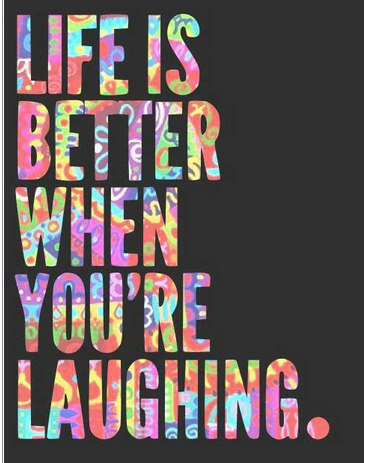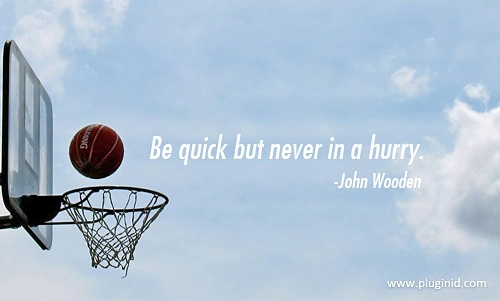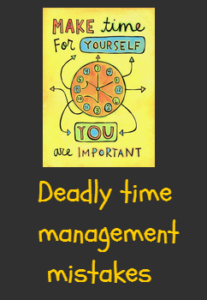Picture this: You go online with the intention to get a specific time management task done. But along the way, you get distracted by email, Facebook, app/software updates, browser tabs you forgot you left open, a tweetstorm from your favorite celebrity, and that other thing you were supposed to do online yesterday.
Wouldn’t it have been great if you had some kind of time management app or web tool that stopped you from wasting 45 minutes before finally remembering what you went online to do in the first place?
Online distractions can be a real problem for those who aren’t mindful or disciplined enough to resist unproductive browsing habits, but there’s no reason why even the most distraction-prone individual can’t train themselves to become more intentional users. Tools like time management apps and browser extensions can be a big help when just getting started.
If you want to start being a more productive web user who has more free time to enjoy, consider downloading or installing one (or several) of the following tools.
RescueTime is one of the most popular time management applications that you can use on both the desktop and mobile web to track your time spent browsing websites and apps. A free membership gets you this plus the opportunity to set goals on how you want to spend your time, as well as weekly and quarterly reports. You can also use the tool to get alerts about when you’ve spent enough time on a certain activity, block specific websites, log achievements throughout your day, and more.
Trackr
Want to see exactly how much time you’re spending on specific websites? Trackr is a simple Chrome web browser extension that displays a nice pie graph and corresponding legend to give you a visual idea of where you’re spending you’re time. According to the developer, it only tracks active time on a web page — meaning if you leave lots of browsers open, it won’t detect mouse movement or any other actions on the web page that counts toward the track. Go F***ing Work
This one isn’t exactly for people who prefer proper language. Like Trackr, Go F***ing Work is a Chrome extension that acts as a website blocker. Just tell the extension which websites you want to block (like Facebook, Netflix, YouTube, etc.), and then every time you try to visit it, you’ll be dissed and sworn at for even trying. You can, of course, put the extension on pause for as little as five minutes or as long as 48 hours, but the extension will ask you if you’re f***ing sure before doing so! More »
If you’re not too keen on having profane language spewed at you by the previously suggested browser extension, you may want to try StayFocused as a similar, much more polite alternative. StayFocused is also a Chrome extension that works by limiting your access to time-wasting websites. This particular extension allows you to limit access for a specified amount of time — say, for an hour of productive time. You also can set a daily maximum time allowed for access, but when that time is up, those websites will be inaccessible for the rest of the day.
Are you a Mac user? SelfControl is a free Mac app that allows users to block pretty much anything they want — websites, mail servers, or whatever else. Be warned, though: Unlike the Chrome extensions mentioned above, which can be bypassed just by deactivating them, SelfControl keeps working even after you restart your Mac. So when you set a time limit to block distractions, make sure you really don’t need them during that period of time. More »
Okay, so maybe you’re more of a mobile addict. If you are, you’ll want to check out Forest — a premium app available for iOS, Android, and Windows Phone devices that takes a super nice approach to beat smartphone addiction. Planting trees! You plant a tree whenever you want to focus on your work, and as you do, the tree grows. If you leave the app, the tree is killed. There are also browser extensions for Chrome and Firefox too, so you can grow your forest on the web too! More »
If you’re an iPhone addict just looking for a simple, free app to help you kick your bad habit of constantly checking your phone and spending way too much time on it, consider Moment. See exactly how much time you’re spending on your phone, set alerts to remind you to get off the thing every X minutes, and set a daily limit that warns you when you’ve reached it. You can also track which apps you use the most to get an idea of what’s most addicting to you. More »
Another smartphone addiction app available for free for both iOS and Android devices is BreakFree, which monitors your app use and then recognizes patterns of overuse so that it can send you a warning to take it slow. It apparently uses an advanced algorithm to calculate your “addiction score,” which you can see maintained in real-time. There’s just one big downside to this one — it needs yourLocation Services to be turned on, which can really suck the battery life out of your device, so make sure you consider this before trying the app out. More »
Cold Turkey is another all-in-one time management tool built for the desktop web. With the free version, you get to set a maximum block period, create multiple custom groups for block lists that cater to specific occasions, and also enjoy the convenient work/break timer. The pro version gives you a lot more including a scheduling tool, the ability to block applications, the opportunity to set up wildcards or exceptions, work/break intervals, and something called “frozen turkey” for locking yourself out at specific times of the day. More »
If you’re willing to pay for a great time management app that really covers everything, Freedom might be the app for you. You can try it for free and then decide whether you want a monthly, yearly, or permanent subscription. Freedom can cover all devices including those that run on Mac OS X, iOS, and Windows. Block any apps or websites that you want, schedule “Freedom” sessions, and build new habits with lock mode. The app is super clean and simple, but also a very powerful tool for helping you become more productive.
Remove Malware – Free
free-malware-removal.sparktrust.com








